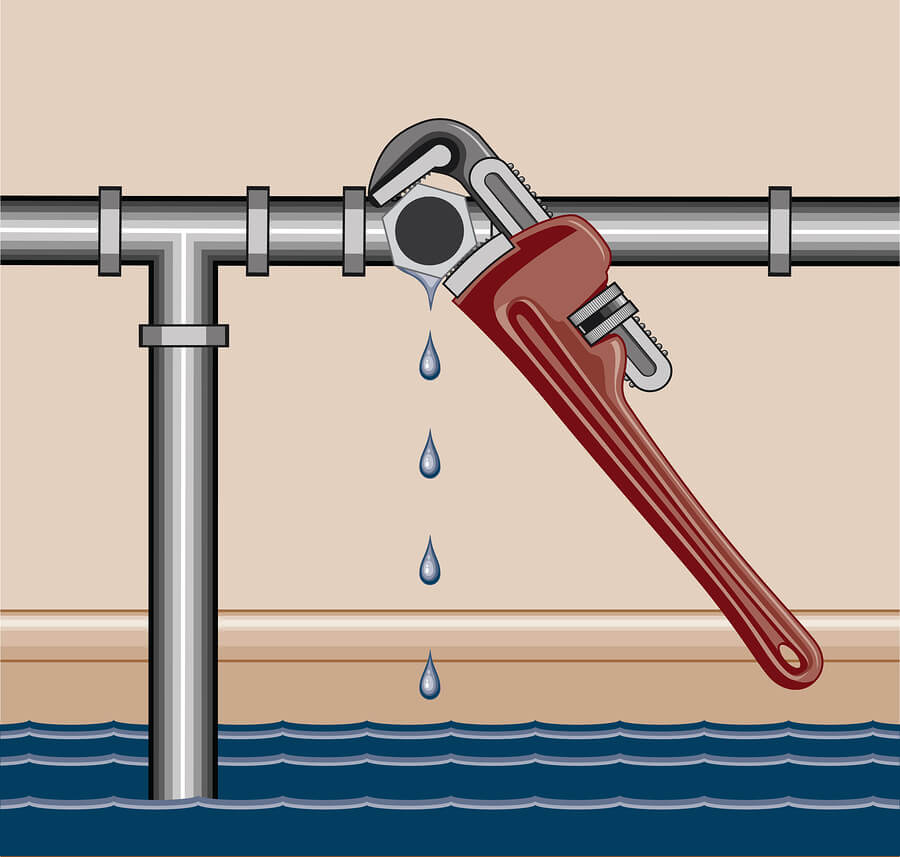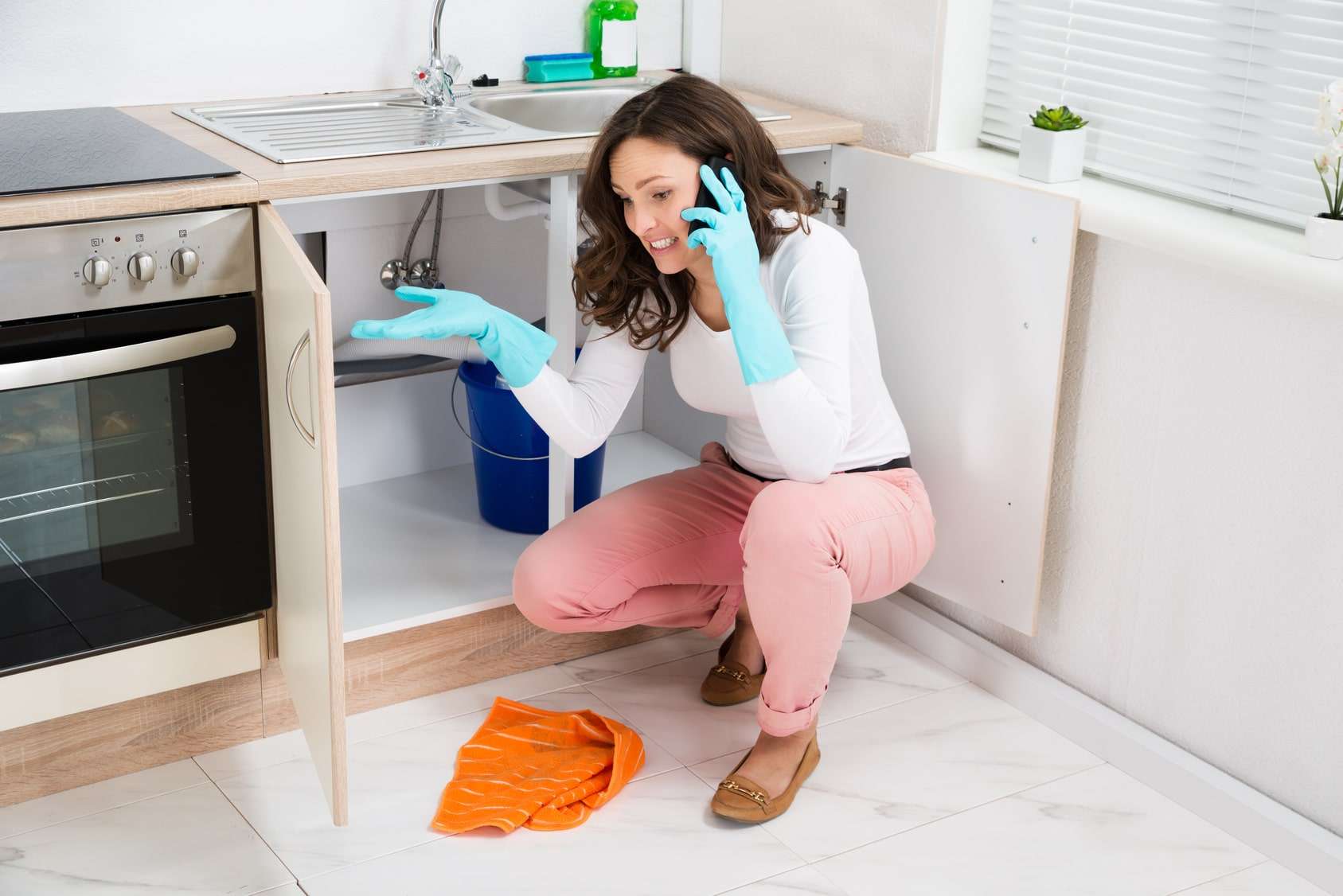Exposing the Key Triggers Behind Residential Water Leak Issues
Exposing the Key Triggers Behind Residential Water Leak Issues
Blog Article
We've uncovered this post on Common Water Leaks In House listed below on the internet and figured it made perfect sense to relate it with you on my blog.

Leakages not just cause waste of water but can also cause unnecessary damage to your home and promote unwanted natural development. However, water leakages may go unnoticed considering that the majority of the pipework in our house is hidden. By looking and also recognizing for daily circumstances that create leaks, you can protect your house from future leakages as well as unneeded damages. Today, we will take a look at six leakage triggers that may be triggering your pipes to leak.
Instantaneous temperature modifications.
Severe temperature modifications in our pipes can trigger them to broaden and contract suddenly. This development and tightening may cause cracks in the pipelines, specifically if the temperature are below freezing. It would certainly be best if you watched on how your plumbing works. The presence of the previously stated conditions often indicates a high risk.
Corroded water supply
As time goes by, your plumbing system ages and also rust such as corrosion may begin eating away the pipelines. This might be the source of discoloration or warping on your pipes. This asks for an evaluation with your plumber quickly. If our plumbing system is old, think about changing the pipelines since they are at a greater danger of corrosion than the more recent models.
Malfunctioning Pipe Joints
The point at which your pipelines attach is often the weakest link in the waterline. Pipeline joints can wear away in time, resulting in water leakages. Sadly, the majority of pipeline joints are not easily noticeable. If you have loud pipes that make ticking or banging sounds, especially when the warm water is switched on, your pipeline joints are probably under a lot of stress. It is recommended to have your plumber evaluate your system once a year.
Encroaching origins
Most water leaks start outside the residence instead than inside it. You may see wet patches or sinkholes in your lawn, and that may indicate that tree roots are getting into water lines creating water to seep out.
Poor Water Connectors
At times, a leakage can be caused by loosened tubes and pipes that provide your devices. In situation of a water links leak, you may notice water running directly from the supply line or puddles around your appliances.
Clogged Drains
Obstructed drains pipes may be bothersome as well as inconveniencing, however they can often end up creating an overflow causing break pipes. Keep removing any products that may decrease your drains pipes that could block them to prevent such aggravations.
All the above are reasons for leakages but not all water leaks result from plumbing leaks; some leakages might originate from roofing system leaks. All leakages should be fixed right away to avoid water damages.
Leakages not just trigger waste of water yet can likewise cause unneeded damages to your house as well as promote undesirable natural growth. By comprehending as well as looking for everyday scenarios that trigger leaks, you can protect your residence from future leaks and also unneeded damage. Today, we will certainly look at six leakage creates that may be creating your pipes to leak.
At times, a leakage can be caused by loose tubes and pipes that provide your devices. In case of a water connections leak, you might see water running straight from the supply line or puddles around your appliances.
How To Check For Water Leak In Your Home
How To Check for Leaks
The average household's leaks can account for nearly 10,000 gallons of water wasted every year and ten percent of homes have leaks that waste 90 gallons or more per day. Common types of leaks found in the home are worn toilet flappers, dripping faucets, and other leaking valves. These types of leaks are often easy to fix, requiring only a few tools and hardware that can pay for themselves in water savings. Fixing easily corrected household water leaks can save homeowners about 10 percent on their water bills.
To check for leaks in your home, you first need to determine whether you're wasting water and then identify the source of the leak. Here are some tips for finding leaks:
Take a look at your water usage during a colder month, such as January or February. If a family of four exceeds 12,000 gallons per month, there are serious leaks.
Check your water meter before and after a two-hour period when no water is being used. If the meter changes at all, you probably have a leak.
Identify toilet leaks by placing a drop of food coloring in the toilet tank. If any color shows up in the bowl after 10 minutes, you have a leak. (Be sure to flush immediately after the experiment to avoid staining the tank.)
Examine faucet gaskets and pipe fittings for any water on the outside of the pipe to check for surface leaks.
Undetected water leaks can happen without the home or business owner even realizing. If you suspect a water leak, but not able to find the source. It is time to contact a professional water leak detection service, The Leak Doctor.
How To Find a Water Leak In Your Home
https://www.leakdoctor.com/blog/How-To-Check-For-Water-Leak-In-Your-Home_AE197.html

I stumbled upon that piece of writing on How Fast Water Damage Can Ruin Your Home when doing research the search engines. Kindly set aside a second to share this blog posting if you enjoyed it. I recognize the value of reading our article about Most Common Causes of Leaky Pipes.
Pipe burst? Phone now! Report this page